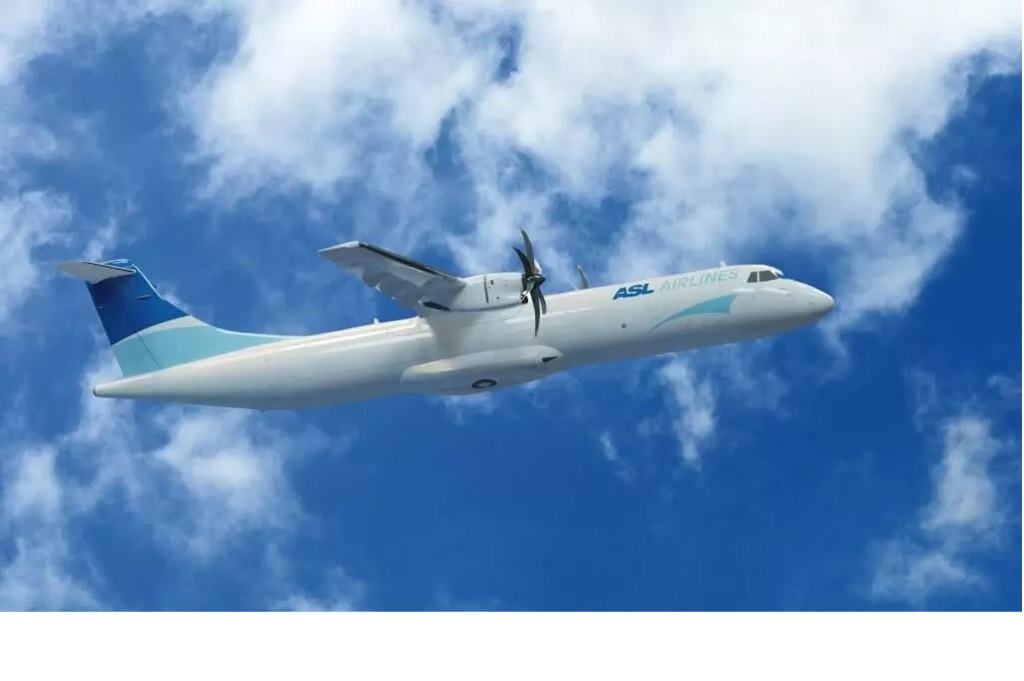ASL Aviation Holdings has signed an agreement with ZeroAvia for up to 20 hydrogen-electric engines for retrofit into its operated fleet of ATR regional turboprop aircraft, creating some of the world’s first zero-emission freight aircraft of this scale.
The firm order of 10 engines, with a further option for up to another 10, and an agreement related to retrofit services builds on an earlier agreement between the two companies announced in November 2021, says an official release from ASL.
Hydrogen-electric engines use fuel cells to convert hydrogen fuel into electricity using an electrochemical reaction. With no combustion of fuel, there are no CO2 or other climate impacting emissions, save for low temperature water vapour.
The electricity generated is then used to power electric motors which turn the propellers. Overall, it is estimated that fuel cell systems in aircraft could reduce in-flight emissions by around 90 percent, the release added.
ZeroAvia has already successfully flown multiple test flights of a prototype 600kW system for 10-20 seat aircraft with certification work already underway with regulators.
The company has also demonstrated consistent technical progress in testing components for its 2-5 MW system (ZA2000) that will ultimately support aircraft within the ATR family with ASL Airlines currently operating 13 such planes.
ASL Aviation Holdings has also developed an industry forum – ASL CargoVision – together with leading new technology companies to raise awareness of innovative new technologies and sustainability for air cargo operations, the release added.




Recent Posts
Port of Brisbane Unveils Vision 2060 to Drive Smarter, Cleaner, and More Connected Future
Wärtsilä to Deliver Hybrid Propulsion Systems for Vertom Group’s New Low-Emission Vessels
Latvian port receives electric Konecranes Gottwald Mobile Harbor Crane
Sustainable Ocean Economy Vital for Human Development, Says UNDP at UN Ocean Conference
Green Hydrogen Costs in India Could Drop by 40%, Says IEEFA-JMK Report
Cavotec Secures €1.55 Million Shore Power Contract for Port of Antwerp-Bruges
APM Terminals and SANY Marine sign landmark agreement to accelerate decarbonisation
The Port of Gothenburg takes big step towards shore power connection for container and car/RoRo vessels